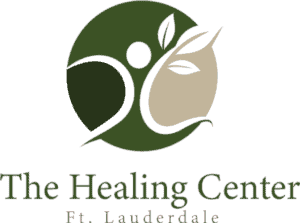The use and abuse of highly addictive substances can have profound and wide-ranging impacts on an individual’s life. These repercussions extend to social, professional, and personal relationships, as well as affecting physical and mental health.
Continuing to abuse these substances can lead to devastating and often irreversible consequences, sometimes resulting in fatal outcomes. Seeking the right professional care to combat addiction to these substances is critical for overcoming the associated dangers.
What Is An Addictive Substance?
An addictive substance, also known as an addictive drug or substance of abuse, is a chemical compound that has the potential to create physical or psychological dependence in individuals who use it. These substances can lead to addiction, which is characterized by a compulsive and uncontrollable urge to continue using the substance despite harmful consequences. Addiction can have profound effects on an individual’s physical, mental, and social well-being. Addictive substances can include a wide range of legal and illegal drugs, both prescription and over-the-counter medications, and other substances.
What Are The Most Addictive Substances?
The most addictive substances are those that have a high potential to create physical and psychological dependence, leading to compulsive and harmful patterns of use. It’s important to note that the degree of addiction can vary from person to person, and susceptibility to addiction is influenced by factors like genetics, mental health, and environmental conditions. However, some substances are generally recognized as having a particularly high addictive potential. These substances include:
Alcohol
Alcohol is one of the most widely used and abused substances in the United States. Many individuals grapple with alcohol addiction, yet a significant portion does not receive the necessary care. Alcohol addiction can result in severe health issues, including gastrointestinal problems, high blood pressure, certain cancers, and liver disease. Withdrawal from alcohol can be perilous, necessitating professional assistance to manage its potentially dangerous symptoms.
Meth
Meth is another highly addictive substance, a potent synthetic stimulant that can be snorted, smoked, or injected, inducing a sought-after euphoric high. Meth abuse can lead to paranoia, psychosis, heart problems, skin sores, and dental issues. Seeking help promptly can mitigate the impact of meth on one’s life.
Methadone
While intended to help those struggling with heroin and opioid painkiller addiction, methadone is often illicitly abused. Its withdrawal symptoms, which include muscle aches, anxiety, nausea, vomiting, diarrhea, and stomach cramping, are extremely uncomfortable and frequently lead to continued substance use.
Heroin
Heroin, a commonly abused drug in America, is a leading cause of overdose and overdose-related deaths. Withdrawal from heroin is a painful and unpleasant process, emphasizing the importance of professional guidance and support during recovery.
Benzos
Benzos, prescribed for sleep and seizure disorders, slow brain activity and produce a calming effect. Abusing benzos can result in severe impacts, including respiratory distress, impaired cognitive function, and memory problems. Benzo withdrawal is hazardous and should be medically monitored.
Cocaine
As a powerful stimulant drug, cocaine can lead to addiction with detrimental effects on personal, social, and professional relationships, as well as mental and physical health. Addressing cocaine addiction is crucial for preventing complications and survival.
Nicotine
Nicotine, due to its addictive nature, ensnares smokers and leads to deadly results. Smoking is associated with various cancers, heart problems, and respiratory issues. Nicotine withdrawal symptoms can include irritability, cravings, sleep disturbances, sweating, concentration difficulties, and increased appetite.
Treatment Options For Substance Abuse
Detoxification (Detox): The first step in the treatment process is often detoxification. This is the process of safely managing withdrawal symptoms as the body eliminates the substance from the system. Detox may be done in a specialized facility, and it can include medical supervision to ensure the safety and comfort of the individual.
Inpatient (Residential) Treatment: Inpatient treatment involves a stay in a residential facility, providing a highly structured environment for individuals with severe addiction or those who require a higher level of care. It typically includes a combination of therapy, counseling, and medical monitoring.
Outpatient Treatment: Outpatient programs allow individuals to live at home while attending regular treatment sessions. This option offers flexibility, making it suitable for those with less severe addiction or who need to maintain work and family commitments.
Partial Hospitalization Program (PHP): A PHP is a day treatment program that provides intensive therapy and support while allowing individuals to return home in the evenings. It’s a suitable option for those who require more structure than outpatient treatment but don’t need 24-hour care.
Intensive Outpatient Program (IOP): IOPs offer a higher level of care than standard outpatient treatment. Individuals attend therapy sessions several times a week for a few hours each session, allowing them to maintain daily responsibilities.
Medication-Assisted Treatment (MAT): MAT combines behavioral therapy with medications to treat substance use disorders, particularly opioid and alcohol addiction. Medications like methadone, buprenorphine, and naltrexone are used to reduce cravings and withdrawal symptoms.
Get Help Today
If you or a loved one is struggling with substances like alcohol and heroin, The Healing Center offers comprehensive care to address the issues associated with addiction. Reach out to us today and embark on the path to recovery.






